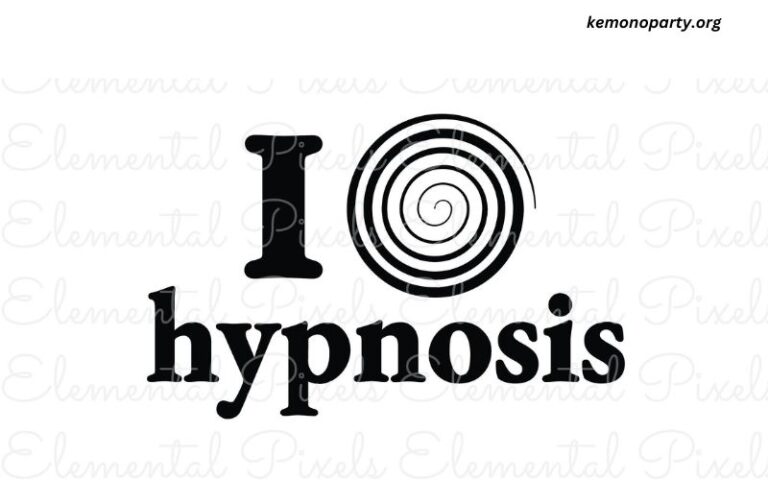“Me Encanta la Hipnosis de Este Mundo,” which translates to “I Love the Hypnosis of This World,” is a fascinating topic that delves into the mesmerizing allure of hypnosis and its impact on human consciousness and behavior. Hypnosis has been a subject of intrigue for centuries, capturing the imagination of individuals from various walks of life, including scientists, psychologists, entertainers, and the general public. This article explores the origins, mechanisms, applications, and cultural significance of hypnosis, shedding light on why it continues to captivate so many.
The Origins and Evolution of Hypnosis
Hypnosis, as a concept, can be traced back to ancient civilizations. The Egyptians, Greeks, and Romans all practiced forms of trance-like states for healing and religious purposes. However, the modern understanding of hypnosis began to take shape in the 18th century with the work of Franz Mesmer, an Austrian physician. Mesmer believed that a mystical force called “animal magnetism” could be harnessed to heal patients, and his methods laid the groundwork for what we now recognize as hypnotic practices.
In the 19th century, Scottish surgeon James Braid coined the term “hypnosis” from the Greek word “hypnos,” meaning sleep. Braid discovered that hypnosis was not a state of sleep but rather a heightened state of focused attention and suggestibility. His work marked a significant shift in understanding hypnosis as a psychological phenomenon rather than a mystical one.
The Mechanisms of Hypnosis
Hypnosis involves inducing a trance-like state in which an individual experiences heightened focus, concentration, and suggestibility. This state is typically achieved through relaxation techniques, guided imagery, and verbal suggestions. During hypnosis, the conscious mind becomes less dominant, allowing the subconscious mind to become more receptive to suggestions.
Neuroscientific research has shown that hypnosis affects brain activity, particularly in regions associated with attention, perception, and consciousness. Functional MRI (fMRI) scans reveal that during hypnosis, there is increased connectivity between the brain’s executive control network and the salience network, which helps individuals focus on specific stimuli while ignoring distractions.
Applications of Hypnosis
The applications of hypnosis are diverse and span across various fields, including medicine, psychology, and entertainment.
- Medical and Therapeutic Uses: Hypnotherapy, the therapeutic use of hypnosis, has been employed to treat a range of conditions, such as chronic pain, anxiety, depression, and post-traumatic stress disorder (PTSD). It is also used to help individuals overcome phobias, manage stress, and improve sleep. Hypnosis can be a valuable tool in pain management, particularly for patients undergoing surgery or experiencing chronic pain conditions.
- Behavioral and Habit Control: Hypnosis has been used to help individuals quit smoking, lose weight, and manage addictive behaviors. By accessing the subconscious mind, hypnotherapists can help clients reframe negative thought patterns and reinforce positive behaviors.
- Performance Enhancement: Athletes, artists, and professionals often use hypnosis to enhance performance, boost confidence, and improve focus. Hypnotic techniques can help individuals visualize success, reduce anxiety, and develop a winning mindset.
- Forensic Hypnosis: In some cases, hypnosis has been used in forensic investigations to help witnesses recall details of a crime. However, this application is controversial due to concerns about the accuracy and reliability of hypnotically induced memories.
- Entertainment and Stage Hypnosis: Hypnosis is also popular in the entertainment industry. Stage hypnotists perform shows where volunteers are hypnotized to perform amusing and often outlandish acts. While entertaining, these performances also demonstrate the power of suggestion and the malleability of the human mind.
Cultural Significance and Misconceptions
Hypnosis has left a lasting imprint on popular culture, often portrayed in movies, television shows, and literature as a mysterious and sometimes sinister practice. Characters who wield the power of hypnosis are depicted as having the ability to control minds and manipulate others, contributing to a sense of mystique and fear surrounding the practice.
One of the most significant misconceptions about hypnosis is the belief that it involves mind control or loss of free will. In reality, individuals under hypnosis are not unconscious or asleep; they remain aware of their surroundings and can choose to accept or reject suggestions. Hypnosis requires the participant’s consent and cooperation, and ethical hypnotherapists work within the boundaries of their clients’ comfort and well-being.
Another common myth is that only certain people can be hypnotized. Research indicates that most individuals can experience some level of hypnotic trance, although the degree of suggestibility varies. Factors such as personality traits, openness to experience, and motivation can influence an individual’s responsiveness to hypnosis.
The Allure of Hypnosis
The fascination with hypnosis can be attributed to several factors. Firstly, the idea of accessing the subconscious mind and unlocking hidden potential is inherently appealing. Hypnosis offers a pathway to explore the depths of human consciousness and uncover insights that may be inaccessible through ordinary waking states.
Secondly, the therapeutic benefits of hypnosis provide hope and relief for individuals struggling with physical and psychological challenges. The ability to alleviate pain, reduce anxiety, and overcome detrimental habits without medication or invasive procedures is a powerful draw for many seeking alternative treatments.
Finally, the entertainment value of hypnosis, with its blend of mystery and spectacle, continues to captivate audiences. Stage hypnosis shows and hypnotic phenomena depicted in media tap into the human desire for wonder and amazement, offering a glimpse into the extraordinary capabilities of the mind.
Conclusion
“Me Encanta la Hipnosis de Este Mundo” reflects a deep appreciation for the captivating and multifaceted nature of hypnosis. From its ancient roots to its modern applications, hypnosis remains a subject of endless fascination and potential. Whether used for healing, self-improvement, or entertainment, hypnosis continues to demonstrate the remarkable power of the human mind and its ability to transcend the ordinary. As research advances and our understanding of consciousness deepens, the hypnotic allure of this world will undoubtedly continue to inspire and intrigue.


